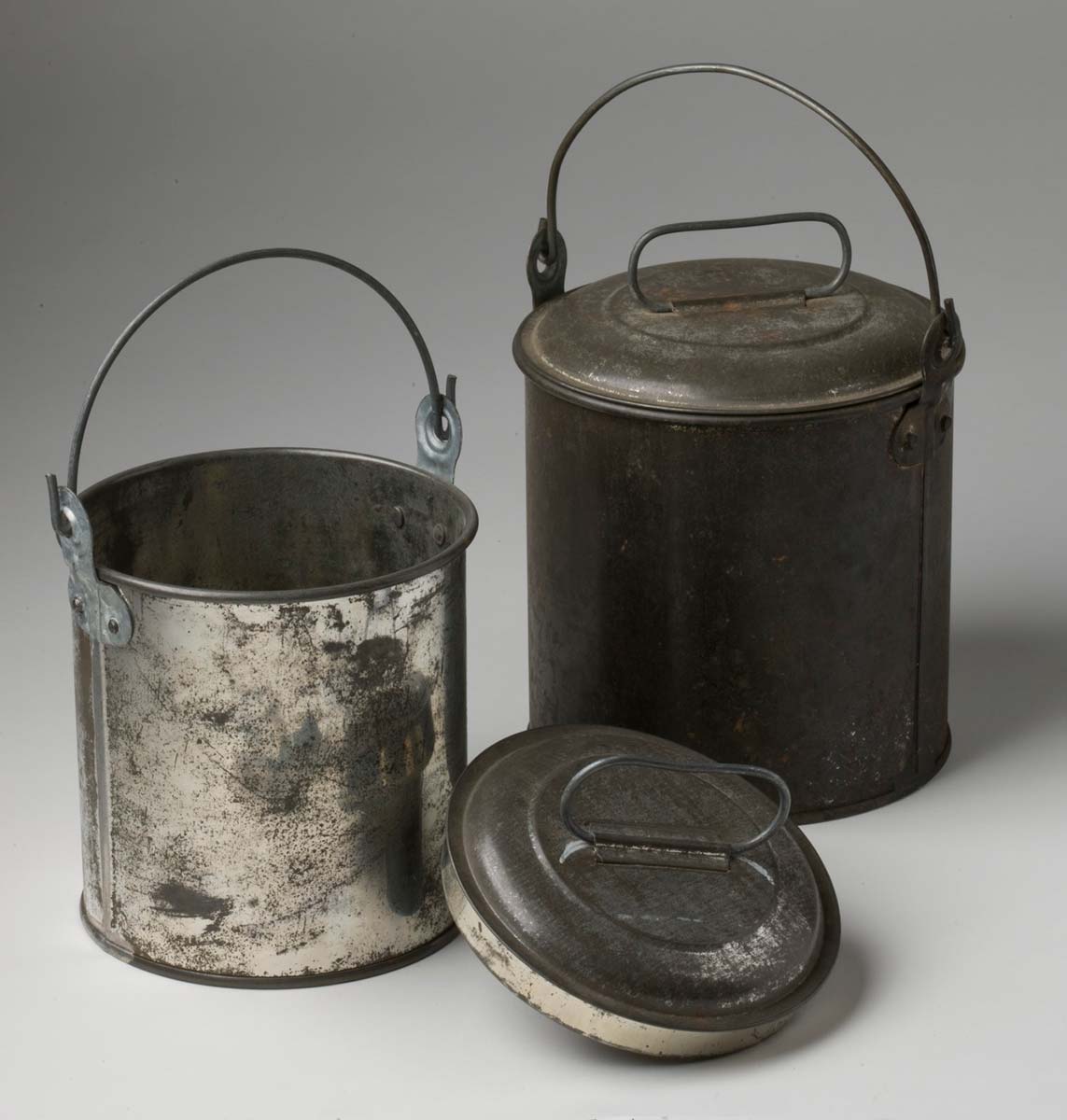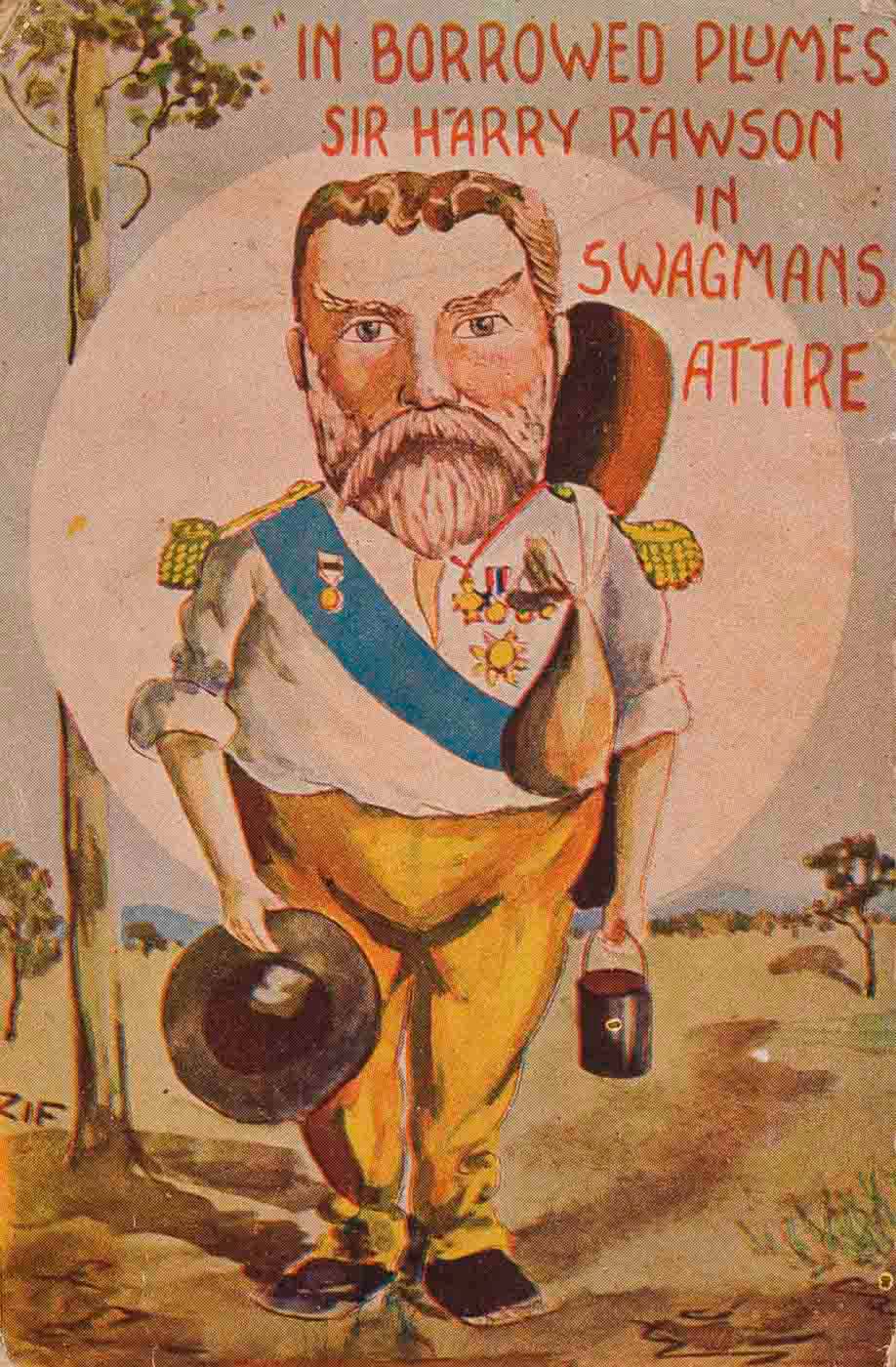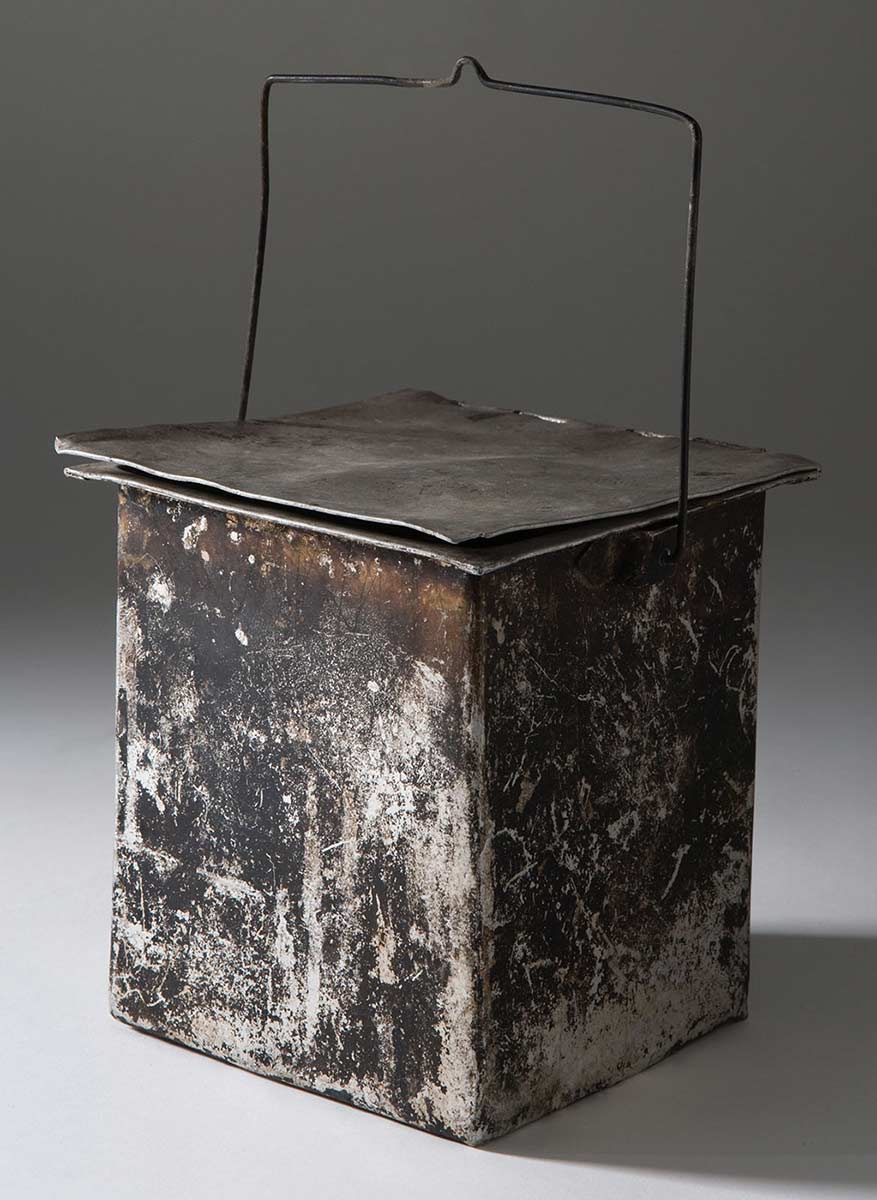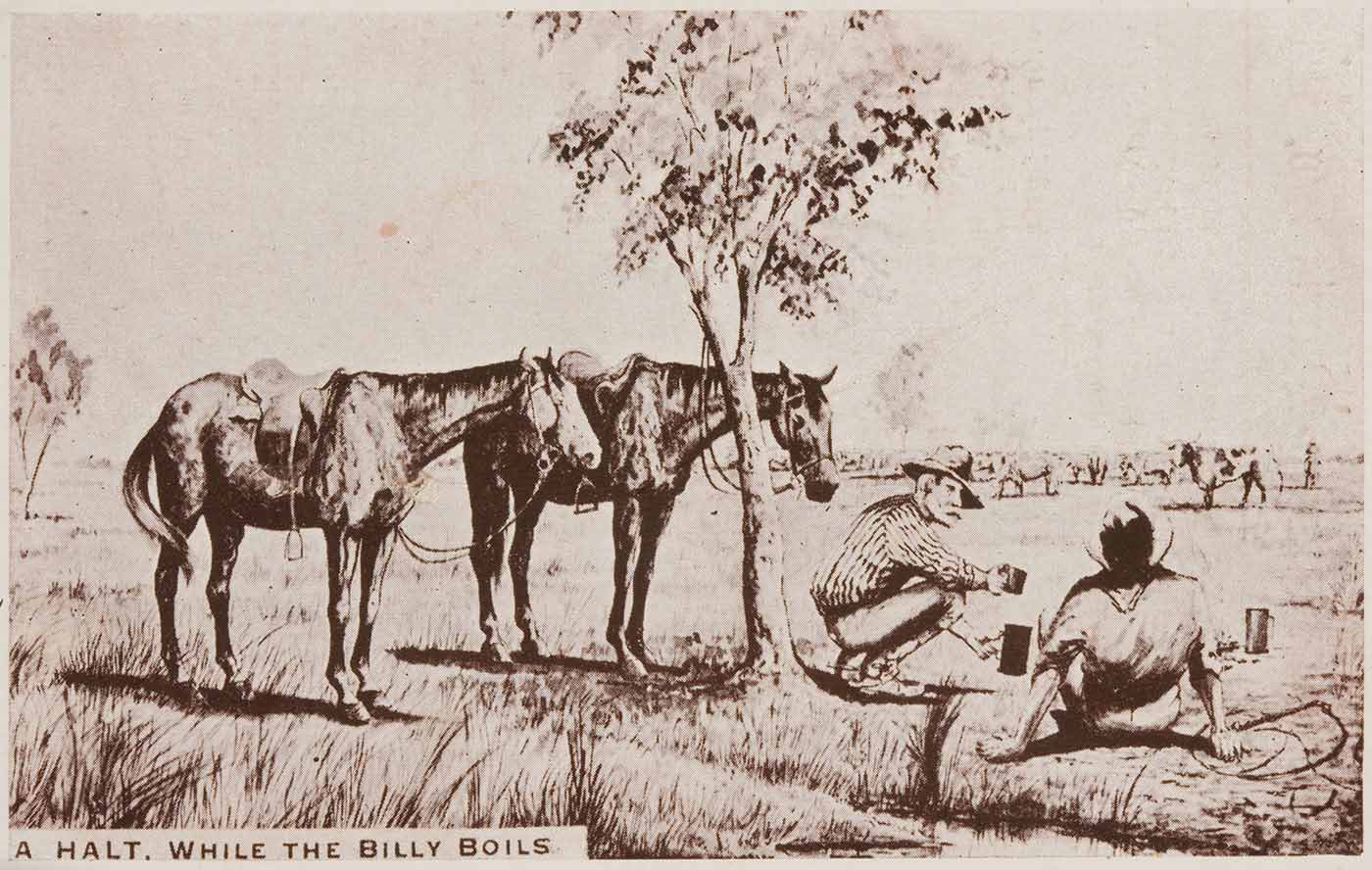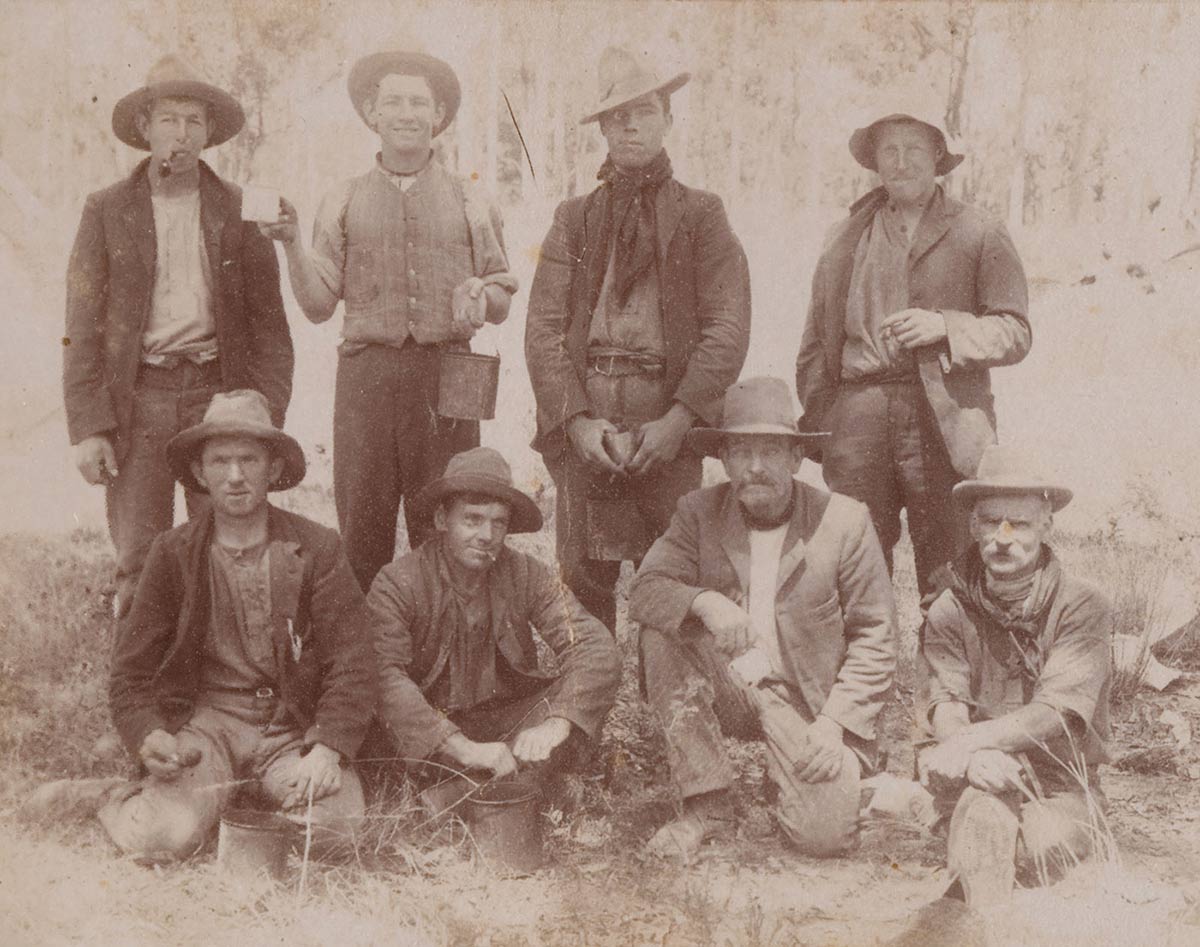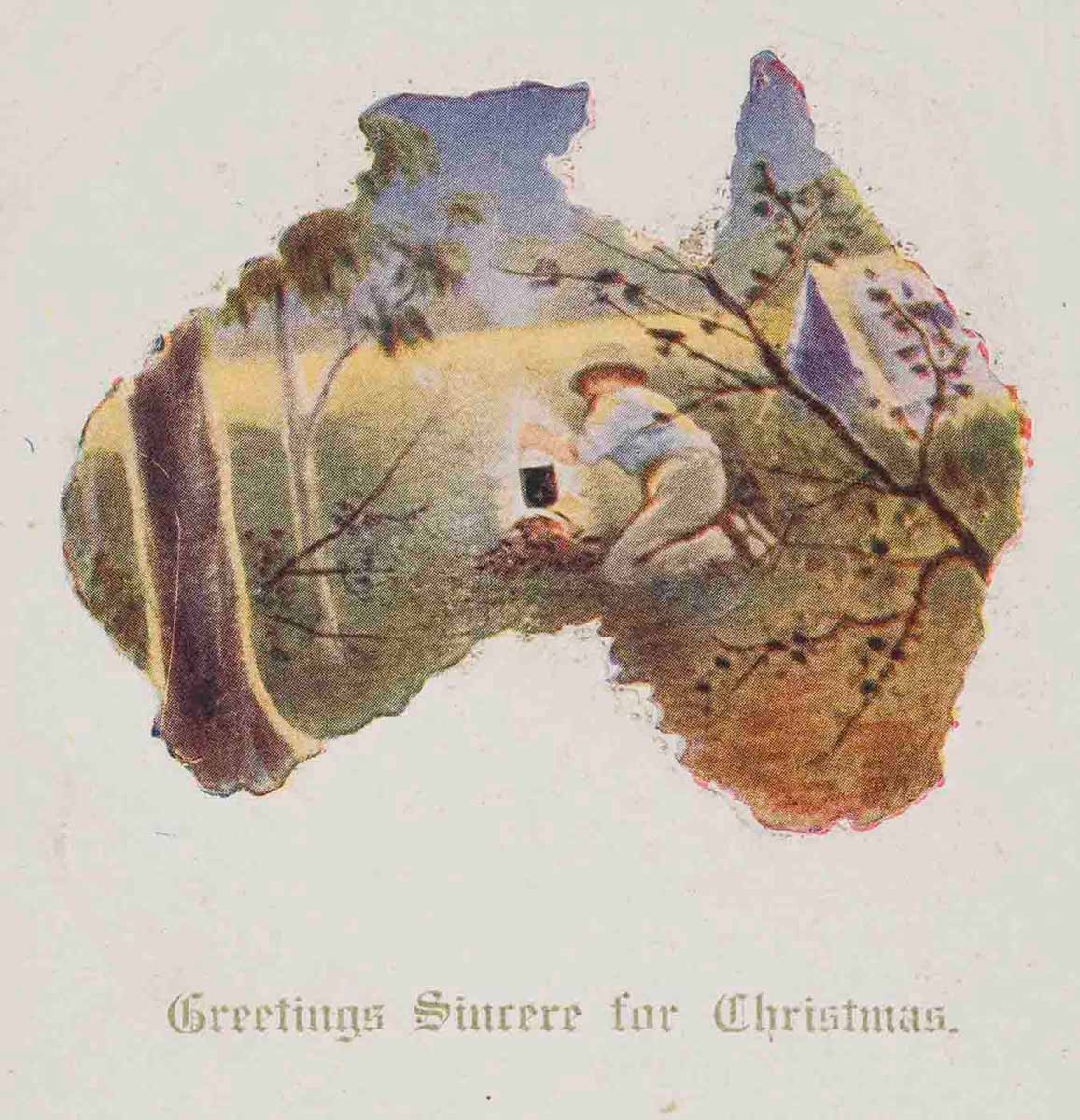The billy is an Australian term for a metal container used for boiling water, making tea or cooking over a fire. By the end of the 19th century the billy had become as natural, widespread and symbolic of bush life as the gum tree, the kangaroo and the wattle.
Mateship and nostalgia
The billy was cheap, lightweight and versatile. Its elevation to symbolic status stemmed from more than its practicality.
Australians invested it with human qualities such as reliability, hospitality and egalitarianism – qualities that were celebrated as distinctively Australian.
The billy became a source of comfort and companionship; ultimately it became a mate. The billy today is largely an object of nostalgia, symbolic of a way of life that has almost disappeared.
Waltzing Matilda and the billy
Waltzing Matilda is an unofficial Australian anthem, with lyrics written in 1895 by bush poet Banjo Paterson. However, the version most Australians are familiar with was rewritten by the Billy Tea Company in 1903.
In the new version of the song the line 'he sang and he looked at the old billy boiling' was replaced by 'he sang and he watched and waited till his "Billy" boiled', thus stressing the connection to Billy Tea. This new line was also inserted into the chorus, ensuring maximum exposure for the 'Billy' brand.
As Federation approached, many Australians looked to the bush as representing the 'real' Australia. Sketches, stories, poems and art about bush life invariably included the billy.
In particular it was linked to the swagman, the nomadic traveller in search of work, who is also the central character in Waltzing Matilda. It was around the boiling billy that the great Australian yarn was spun.
At the same time as it was a symbol of bush hospitality it also represented the democratic, self-reliant Australian spirit. Many young and newer Australians, even if they are familiar with the words of Waltzing Matilda, may be unaware of what a billy is.
Camping equipment
For bushwalkers, the billy served as a connection to an ‘authentic’ bush culture well into the 20th century. 'Bushies’ still use billies, tourists on outback holidays are offered billy tea, and billy-boiling competitions are held at country shows.
Restrictions on fire use in national parks, however, has limited the use of the billy, and some bushwalkers complain about being denied the opportunity to boil the billy.
In our collection
